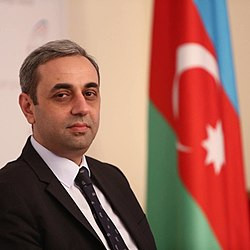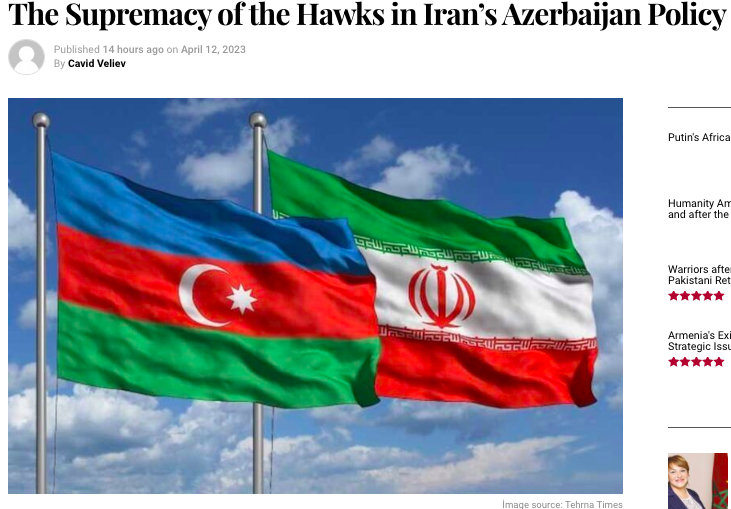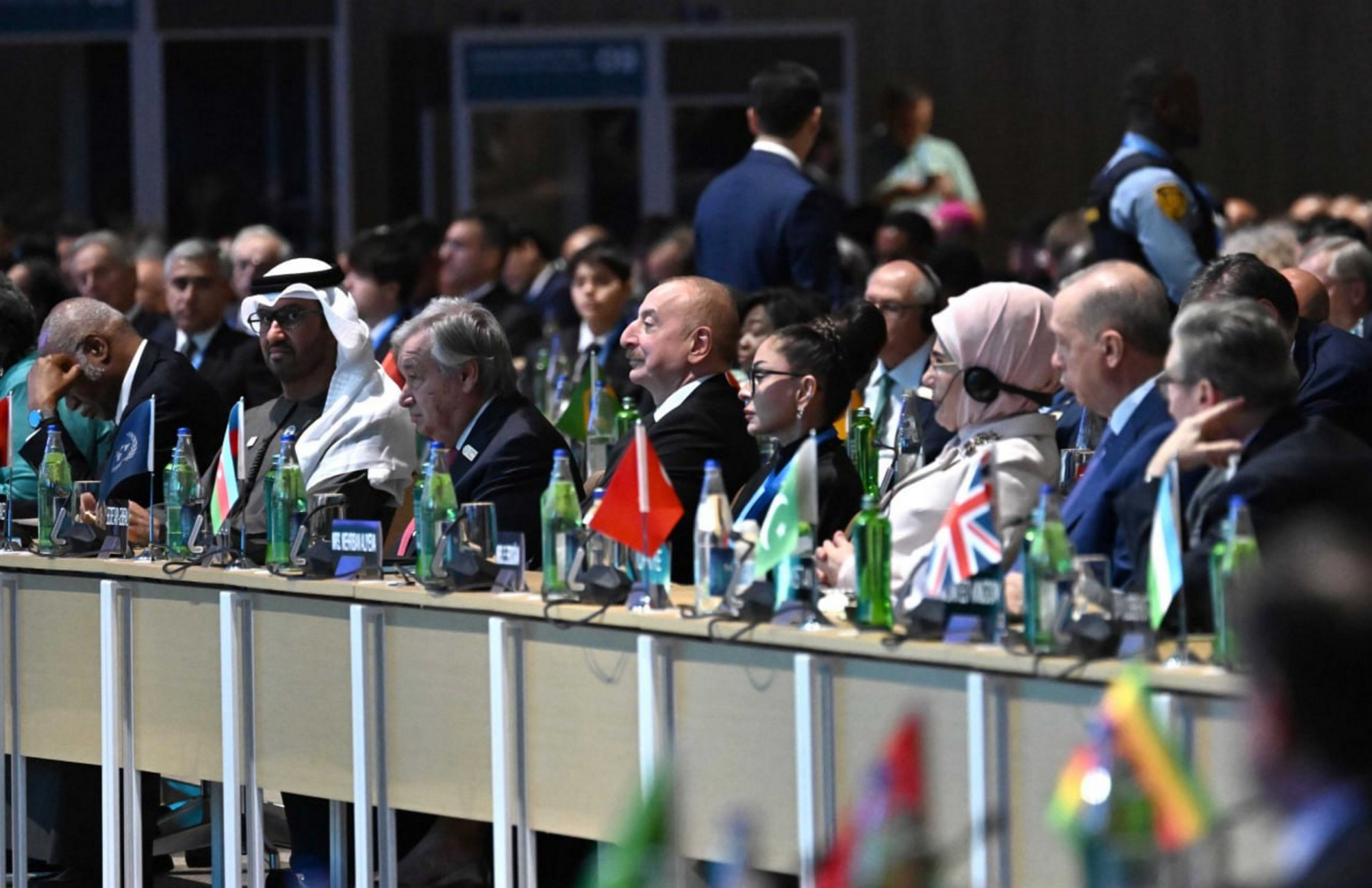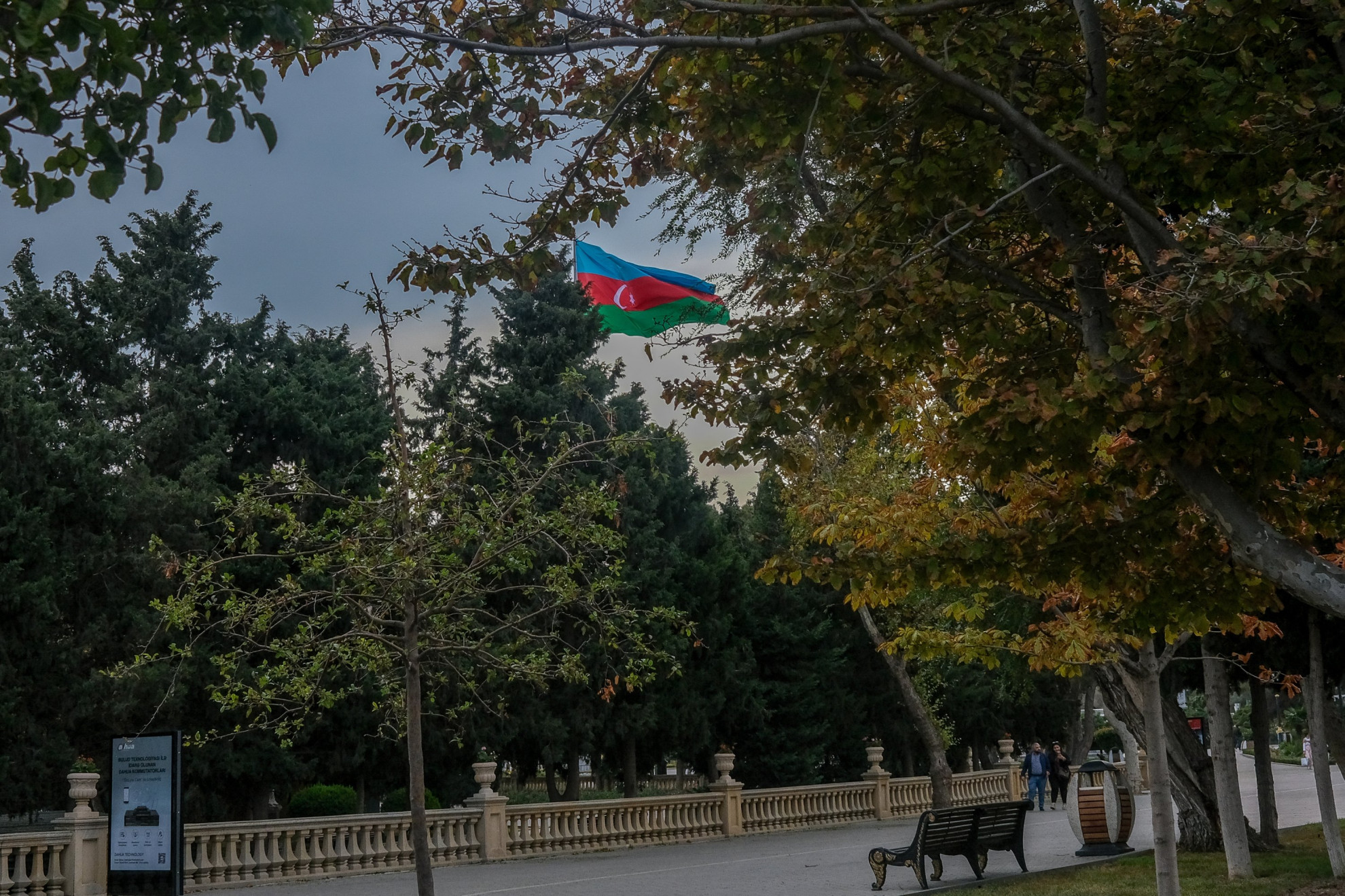After the terrorist attack on the Azerbaijani embassy in Tehran on January 27, 2023, a security guard was killed and one security personnel was injured, tensions in Iran-Azerbaijan relations continue in several directions.
While Azerbaijan was disturbed by the fact that the person who carried out the terrorist attack on its embassy was protected by the Tehran police, and the support behind it was not revealed, Azerbaijan withdrew its diplomats from the Tehran embassy back to Baku. Beyond that, dozens of people were detained as suspects as a result of the counter-operation organized by the Azerbaijan Intelligence Organization against Iran’s spy network in Azerbaijan in the last 7 months. Finally, the Azerbaijani foreign ministry declared four diplomats in the Iranian embassy in Baku persona non grata and gave them 48 hours to leave the country with their families. In general, such situations are experienced when diplomats do not act in accordance with their duties and interfere in the internal affairs of countries.
This tension between the two countries was also reflected in the decisions of the parliaments. The Iranian parliament adopted a declaration targeting Azerbaijan. The Azerbaijani parliament, describing it as a step unsuitable for neighborliness, issued a response statement to this step.
This tension started to become more dangerous in the military field as well. While Iran conducted 3 military exercises on the border with Azerbaijan in the last year, the commander of Iran’s armies threatened Azerbaijan. Iran’s Revolutionary Guards are threatening Azerbaijan by shooting videos. In the last video, they released a video showing Iran’s kamikaze UAVs attacking Azerbaijan. In return, Azerbaijan responded with own military exercises , and the Azerbaijani defense ministry accused Iran of supporting terrorism in the region.
While there has always been a fluctuating tension in Iran-Azerbaijan relations in the last 30 years, it has never reached this level. This tension in relations in recent times can be explained by two reasons. The first is the election of hard-line Ibrahim Reisi as president in Iran in 2021. Second, the Reisi government wanted to change the new geopolitical reality that emerged in the region after the Karabakh Victory of Azerbaijan.
After Ibrahim Reisi was elected president, the number of appointments from the Revolutionary Guard increased and the role of the hardline wing in Iran’s Azerbaijan policy became stronger. President Ilham Aliyev met with Ibrahim Reisi twice, but this meeting did not helped normalize relations but increased tensions.
Iran, which is disturbed by the fact that the Karabakh Victory has changed the geopolitical reality in the region in favor of Azerbaijan, thinks that results of Karabakh war has encouraged 30 million Azerbaijanis living in it and strengthened their national identities. Tehran is trying to eliminate this result by applying psychological pressure through Azerbaijan.
Tehran accepts especially opening an Azerbaijani embassy in Israel after many years as a threat. Acoording Reisi government it is unacceptable for a Muslim country to open an embassy in Israel. But Azerbaijan is not the only Muslim country with an embassy in Israel. There are several Muslim countries previously had embassies in Israel. On the other hand, Azerbaijan has observed Iran’s sensitivity on this issue for many years, but the Second Karabakh war and Iran’s provocative steps after it caused a change in attitude. Iran’s support to Armenia, which occupied the Azerbaijani lands, caused Baku to take a step of response. After the war, Iran opened a consulate in Kafan, Armenia, a few kilometers from the Azerbaijani border, and Iranian Foreign Minister Hüseyin Abdullahian attended the opening of this consulate and defined the security of Armenia, which occupied the Azerbaijani lands for 30 years, as Iran’s security. While Iran remained silent during the 30 years that Azerbaijani lands were under occupation, in the post-war period, it defined the protection of Armenia’s borders as Iran’s red line.
It is also known that at the same time, Iran sent arms to Armenia and sent military advisers to provide military training to Armenian soldiers. There is a concern that Iran, which uses asymmetric warfare tactics in Libya, Yemen and Syria, will also benefit from the same tactics against Azerbaijan through Armenia.
It is possible to associate recent esacalations in Iran Azerbaijan relations the increase in Iran’s aggression with the recent geopolitical developments in the region. These are the pre-election situation in Azerbaijan’s strategic ally Turkey, Iran’s growing relations with Russia and China, and its normalization of relations with Saudi Arabia. As a result of the increasing relations with these countries, the hawks in Iran are thought to be more self-confident. By taking advantage of these, he plans to reverse the geopolitical reality in the region after the Karabakh War in his favor.
After the war, Azerbaijan took important steps to appease Iran. First, Azerbaijan proposed a six-party platform for regional cooperation consisting only of regional states, including Iran, and its first meeting was held in Moscow. While the second one was expected to be held in Ankara, Iran insisted that it be held in Tehran. Of course, this was a regional imposition and was not accepted by the parties. Moreover, after the war, President Ilham Aliyev visited the Araz river between Iran and Azerbaijan and defined it as the border of two friendly countries. Furthermore, Azerbaijan signed an agreement between Iran and Azerbaijan to build a new bridge over the Araz river in order to relieve Iran’s concerns about the Zangezur corridor, and the bridge was completed. But these steps did not appease Iran.
On the other hand, Azerbaijan’s allied network is a deterrent for Iran in the face of these pressures by Tehran. The Shusha Declaration on allied relations between the Republic of Azerbaijan and the Republic of Turkey signed between President of Azerbaijan Ilham Aliyev and President of the Republic of Turkey Recep Tayyib Erdogan in the city of Shusha, which was liberated from occupation on June 15, 2021, brought the cooperation of the two countries to a new dimension in the military-defence field. This declaration was later approved by the parliaments of both countries and became an international agreement. Allied relations of Azerbaijan with Pakistan, another Muslim country, are very important. After the Second Karabakh War, Azerbaijan-Turkey-Pakistan special forces conducted trilateral exercises together in Azerbaijan. Apart from that, Iran could not persuade Moscow to form an alliance with Russia against Azerbaijan.
As a result, although there have always been tensions in Iran-Azerbaijan relations, the fact that Ibrahim Reisi became President in Iran in the 2021 elections and the Revolutionary Guards’ dominance over Iran’s security and foreign policy caused the Azerbaijani policy to fall into the hands of the hardline groups. By following an aggressive policy towards Azerbaijan, Iran puts pressure on Azerbiajan to accept its demands in diplomatic talks. However, Azerbaijan is showing that it will not give Iran the geopolitical superiority gained in the Second Karabakh War at the diplomatic table.
https://moderndiplomacy.eu/2023/04/12/the-supremacy-of-the-hawks-in-irans-azerbaijan-policy/








